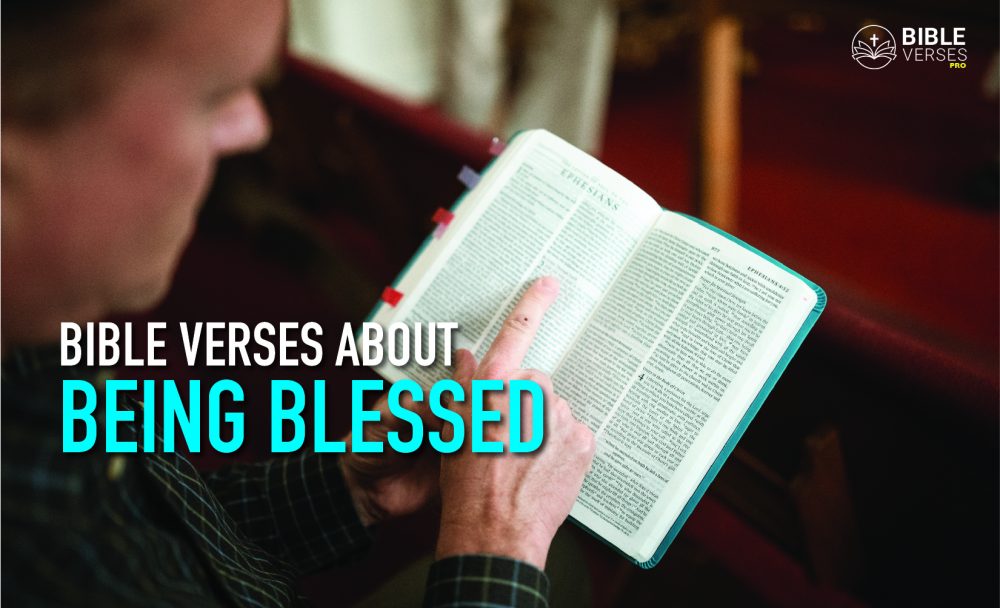The biblical purpose of a funeral extends beyond mere ceremony. It encompasses a deeper spiritual significance rooted in the teachings of the Bible.
Understanding the biblical purpose of a funeral helps believers navigate the grieving process and find solace in the hope and promises offered by God’s Word.
What is the biblical purpose of a funeral?
Funerals are deeply ingrained in human culture as a way to honor and remember the lives of those who have passed away.
In Christian traditions, funerals hold a special significance, serving both as a time of mourning and a reminder of the hope and comfort found in the promises of God.
This article explores the biblical purpose of a funeral, highlighting its essential elements and how it can provide solace, support, and spiritual reflection for the bereaved.
Here is the Biblical purpose Of a Funeral:
- It allows family and friends to share memories, express gratitude, and pay tribute to the deceased, acknowledging their inherent dignity and worth. (Genesis 1:27)
- Sharing in grief and offering comfort is an integral part of the funeral experience. (Romans 12:15)
- Funerals present an opportunity to reflect on these promises, to seek spiritual guidance and strength, and to find solace in the belief that the departed have entered into the loving presence of God. (John 3:16)
- A funeral can inspire introspection, leading to personal growth and a renewed commitment to live by God’s principles. (Psalm 90:12).
- Attending a funeral allows people to offer condolences, provide practical assistance, and share in the collective grief. This unity and support can bring healing and strength to those who mourn. (Galatians 6:2).
Is it a sin to not have a funeral?
No, it is not a sin to not have a funeral. The Bible does not mandate specific funeral practices or prescribe funerals as obligatory.
While funerals hold cultural and social significance and can be a means of expressing compassion and support, the decision not to have a funeral is a personal choice and does not inherently constitute a sin.
The decision of whether or not to have a funeral for a loved one is a deeply personal and complex matter.
Some individuals may wonder if choosing not to have a formal funeral service goes against religious beliefs or constitutes a sin.
This section provides insights into this question, acknowledging different perspectives and considerations surrounding the topic.
1. Understanding the Significance of Funerals
Funerals hold significant cultural, social, and emotional importance.
They provide an opportunity for family and friends to come together, mourn the loss, honor the deceased, and seek comfort and support.
Funerals often involve rituals, prayers, and eulogies, serving as a means to express grief and celebrate the life of the departed.
A. Religious Perspectives
Christianity: In Christianity, while the Bible does not explicitly command the necessity of a funeral, it does emphasize the value of community support, compassion, and honoring the deceased.
Funerals can facilitate healing, comfort, and the expression of love and support to those who mourn. However, the absence of a formal funeral does not inherently constitute a sin.
Other Religions: Different religious traditions have diverse customs and practices regarding death and mourning.
Some may consider funeral rituals essential for the spiritual well-being of the departed and the grieving family.
It is important to consult religious leaders or refer to specific religious texts for guidance and insights within individual faith traditions.
2. Considerations for Not Having a Funeral
Personal Wishes: Some individuals may express their desire for a non-traditional approach, preferring alternative forms of remembrance such as private gatherings, memorial services, or other commemorative activities.
Respecting the wishes of the deceased or their family can be an important consideration.
Cultural Factors: Cultural and regional differences can influence funeral customs and expectations.
In certain cultures, alternatives to traditional funerals may be deemed more appropriate or in line with cultural norms.
Understanding and respecting cultural beliefs and practices can help inform decisions in this regard.
Emotional Well-being: It is crucial to consider the emotional well-being and needs of the grieving family and friends.
If a formal funeral would cause undue stress, financial burden, or exacerbate grief, alternative ways of commemorating the life of the deceased may be more suitable.
Balancing Perspectives
While funerals offer an opportunity for communal support and healing, it is important to recognize that their absence does not automatically constitute a sin.
Personal circumstances, religious beliefs, and cultural considerations can significantly influence funeral decisions.
Open and respectful communication among family members and loved ones can help navigate this sensitive topic, ensuring that the chosen approach reflects the needs and values of all involved.
what does the bible say about not attending a funeral
Funerals serve as occasions for individuals to gather, mourn, and honor the life of a departed loved one.
However, there may be circumstances where attending a funeral becomes challenging or impractical.
This section will explore the biblical perspectives on not attending a funeral, emphasizing compassion, understanding, and individual circumstances within the context of the Christian faith.
The Importance of Compassion and Support
The Bible encourages believers to express compassion and support to those who are mourning.
Romans 12:15 teaches the value of weeping with those who weep, offering comfort, and extending love.
While attending a funeral is often a way to fulfill this biblical mandate, it is not the sole means of showing care and empathy.
Let us look at some considerations for not attending a funeral:
Distance and Circumstances
Sometimes, geographic distance or logistical challenges may make it difficult for someone to attend a funeral.
In such situations, the Bible recognizes the limitations and understands the inability to physically be present.
It is essential to communicate condolences and offer support in other ways, such as sending a heartfelt message or reaching out to the bereaved family.
Personal Health or Emotional Well-being
Individuals may face circumstances where their physical or emotional health prevents them from attending a funeral.
It is important to prioritize self-care and seek restoration during challenging times.
The Bible acknowledges the significance of caring for one’s well-being, as reflected in passages like Mark 12:31, which instructs believers to love their neighbors as themselves.
Family or Work Commitments
Responsibilities within one’s family or workplace can sometimes conflict with attending a funeral.
The Bible emphasizes the importance of honoring commitments and fulfilling responsibilities.
In such cases, finding alternative ways to express condolences and support, such as offering assistance to the grieving family or participating in post-funeral gatherings, can be meaningful.
Personal Relationships and Dynamics
Individual relationships and dynamics may influence the decision to attend a funeral.
Personal history, unresolved conflicts, or strained relationships might make it challenging for someone to be present at a funeral.
In these instances, it is vital to demonstrate grace, and understanding, and seek reconciliation when appropriate.
Seeking Wisdom and Discernment
When considering not attending a funeral, it is essential to seek wisdom and discernment.
Prayer, seeking guidance from spiritual mentors or leaders, and engaging in self-reflection can help individuals navigate complex situations.
The Bible provides the foundation of principles, but it does not offer specific directives for every circumstance. Therefore, personal discernment and sensitivity to the needs of others are crucial.
what does the bible say about funerals in the church?
Funerals are solemn occasions that provide an opportunity for loved ones to grieve, remember, and honor the life of a departed individual.
For many, the church serves as a significant setting to conduct funeral ceremonies, offering solace, support, and a spiritual framework to navigate through the grieving process.
Comfort and Support: The Bible encourages believers to provide comfort and support to those who mourn. (Romans 12:15)
Hope in Resurrection: Christian funerals are grounded in the hope of resurrection and eternal life. (1 Corinthians 15:42-44).
Commemoration and Reflection: The Bible encourages the commemoration and reflection on the lives of the departed. (Psalm 116:15)
Unity and Supportive Community: The church community plays a crucial role in providing support and comfort during funeral services. (1 Thessalonians 5:11).
Compassion and Empathy: The Bible calls believers to show compassion and empathy towards those who mourn. (2 Corinthians 1:3-4).
what happens at a Christian funeral
Christian funerals are significant ceremonies that provide comfort and hope to the grieving while celebrating the life of the departed.
This section explores the key elements of a Christian funeral in concise explanations:
Gathering and Prayer: Family, friends, and the church community come together to support one another and seek solace in prayer, invoking God’s presence and comfort during the service.
Eulogy and Tributes: Loved ones share personal reflections, memories, and heartfelt tributes, honoring the life, character, and impact of the departed while offering words of comfort to the grieving.
Scripture Readings and Sermon Passages from the Bible are read, chosen to reflect themes of life, resurrection, and eternal hope. A sermon or homily delivers a message of comfort, emphasizing God’s promises and providing guidance through the journey of grief.
Hymns and Worship: Melodies and lyrics of hymns and worship songs are sung, uniting the congregation in collective worship, offering solace, and expressing faith, hope, and assurance in the midst of sorrow.
Commendation and Committal: The deceased is entrusted to God’s care through prayers and blessings. The body or ashes are committed to their final resting place, accompanied by solemn prayers and the recognition of God’s eternal promises.
Conclusion
The question of whether it is a sin to not have a funeral is subjective and does not have a clear-cut answer in the Bible.
The Scriptures do not explicitly command or condemn the act of not having a formal funeral service.
However, the biblical purpose of a funeral goes beyond the question of sin and delves into the spiritual significance and practical benefits of such a gathering.
Funerals offer a space for remembrance, a celebration of a life lived, and the opportunity for individuals to process their grief in the presence of others.







